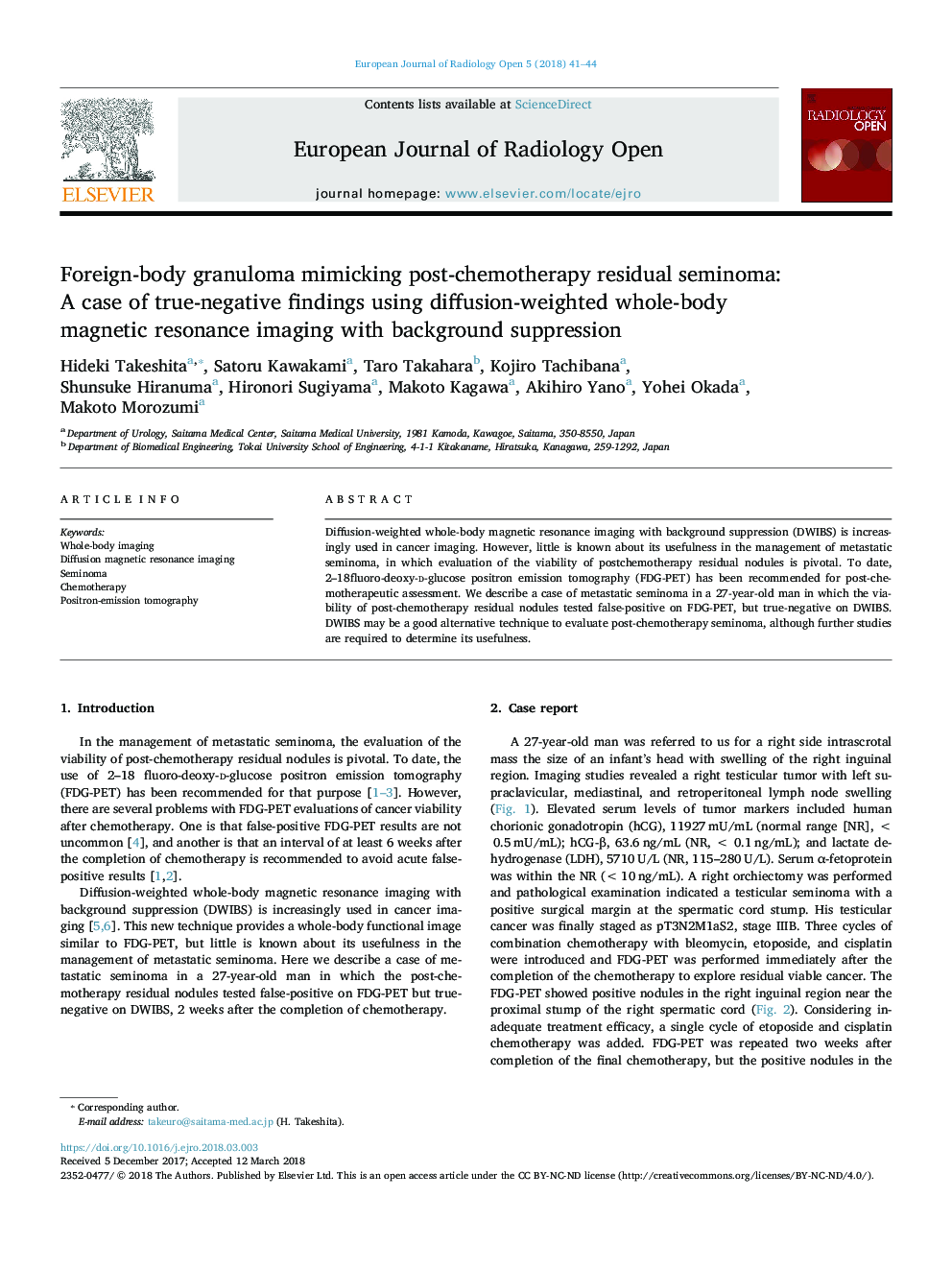| Article ID | Journal | Published Year | Pages | File Type |
|---|---|---|---|---|
| 8822877 | European Journal of Radiology Open | 2018 | 4 Pages |
Abstract
Diffusion-weighted whole-body magnetic resonance imaging with background suppression (DWIBS) is increasingly used in cancer imaging. However, little is known about its usefulness in the management of metastatic seminoma, in which evaluation of the viability of postchemotherapy residual nodules is pivotal. To date, 2-18fluoro-deoxy-d-glucose positron emission tomography (FDG-PET) has been recommended for post-chemotherapeutic assessment. We describe a case of metastatic seminoma in a 27-year-old man in which the viability of post-chemotherapy residual nodules tested false-positive on FDG-PET, but true-negative on DWIBS. DWIBS may be a good alternative technique to evaluate post-chemotherapy seminoma, although further studies are required to determine its usefulness.
Keywords
Related Topics
Health Sciences
Medicine and Dentistry
Radiology and Imaging
Authors
Hideki Takeshita, Satoru Kawakami, Taro Takahara, Kojiro Tachibana, Shunsuke Hiranuma, Hironori Sugiyama, Makoto Kagawa, Akihiro Yano, Yohei Okada, Makoto Morozumi,
